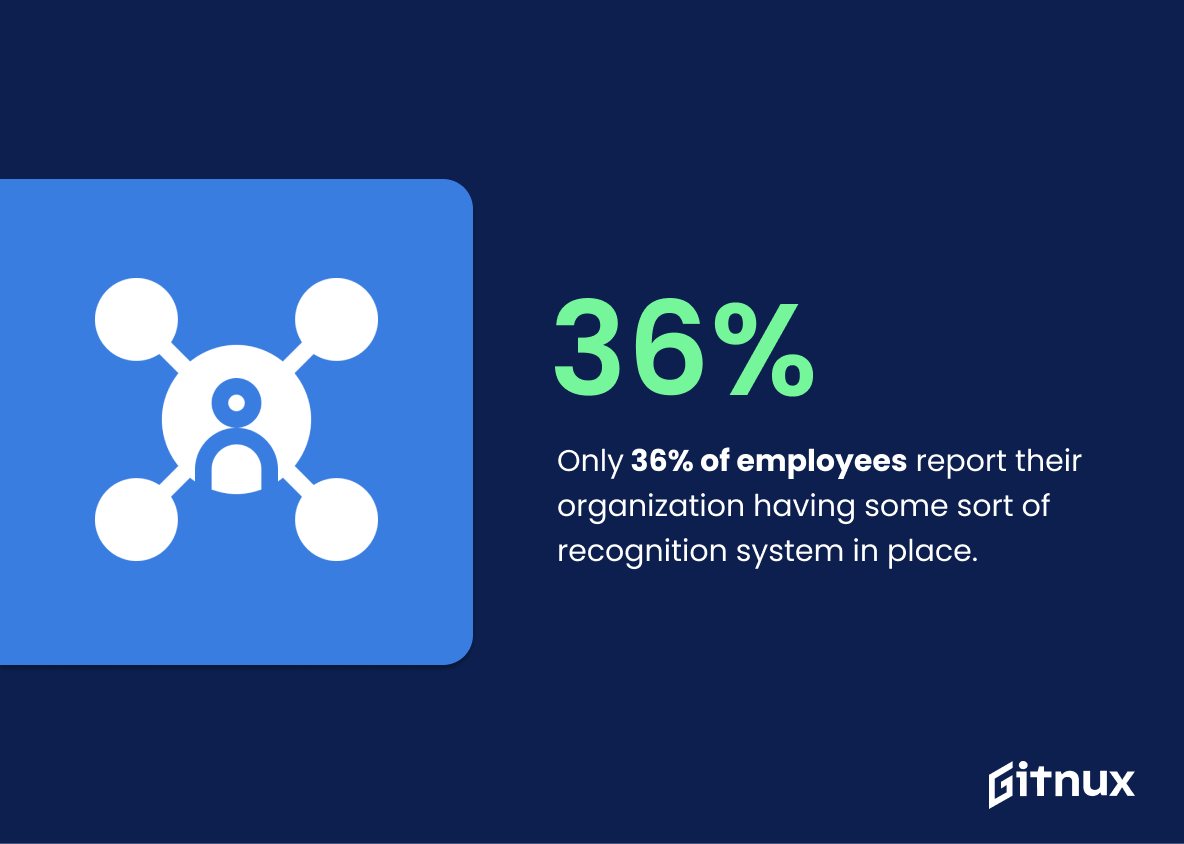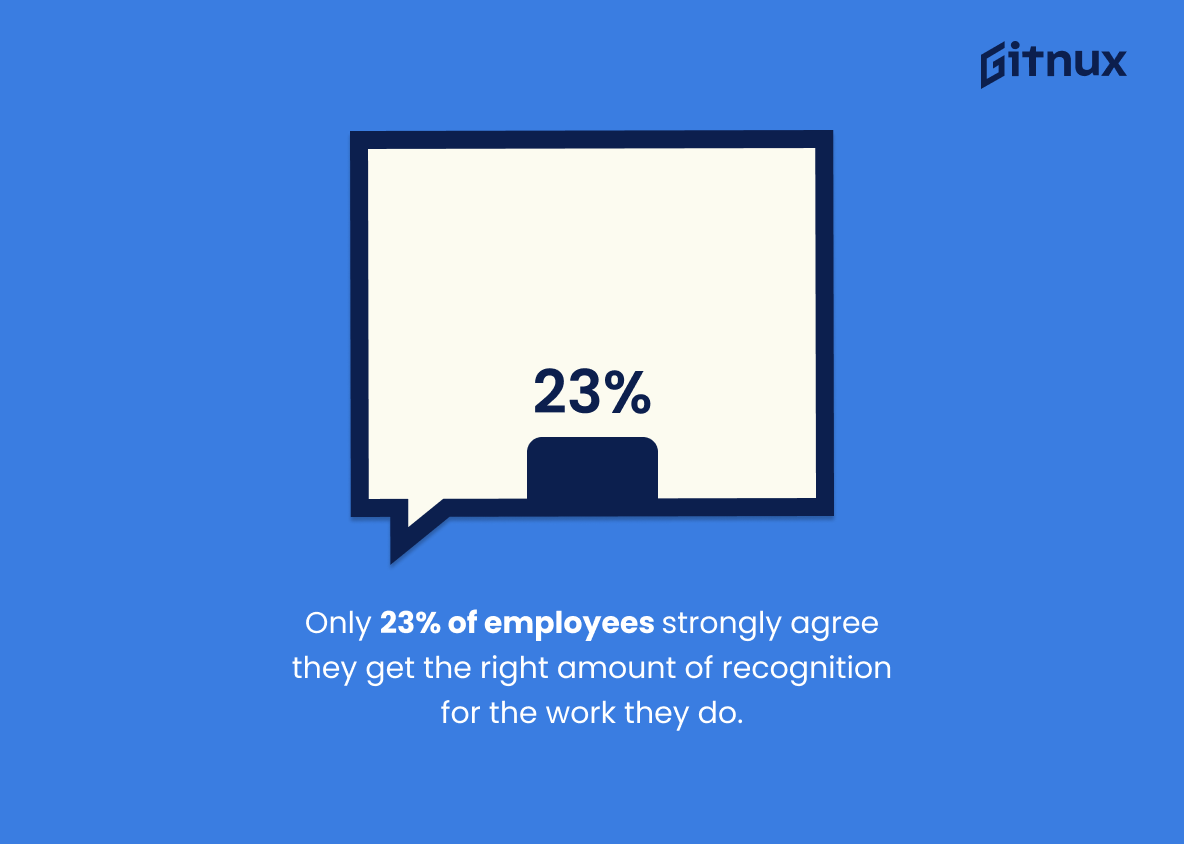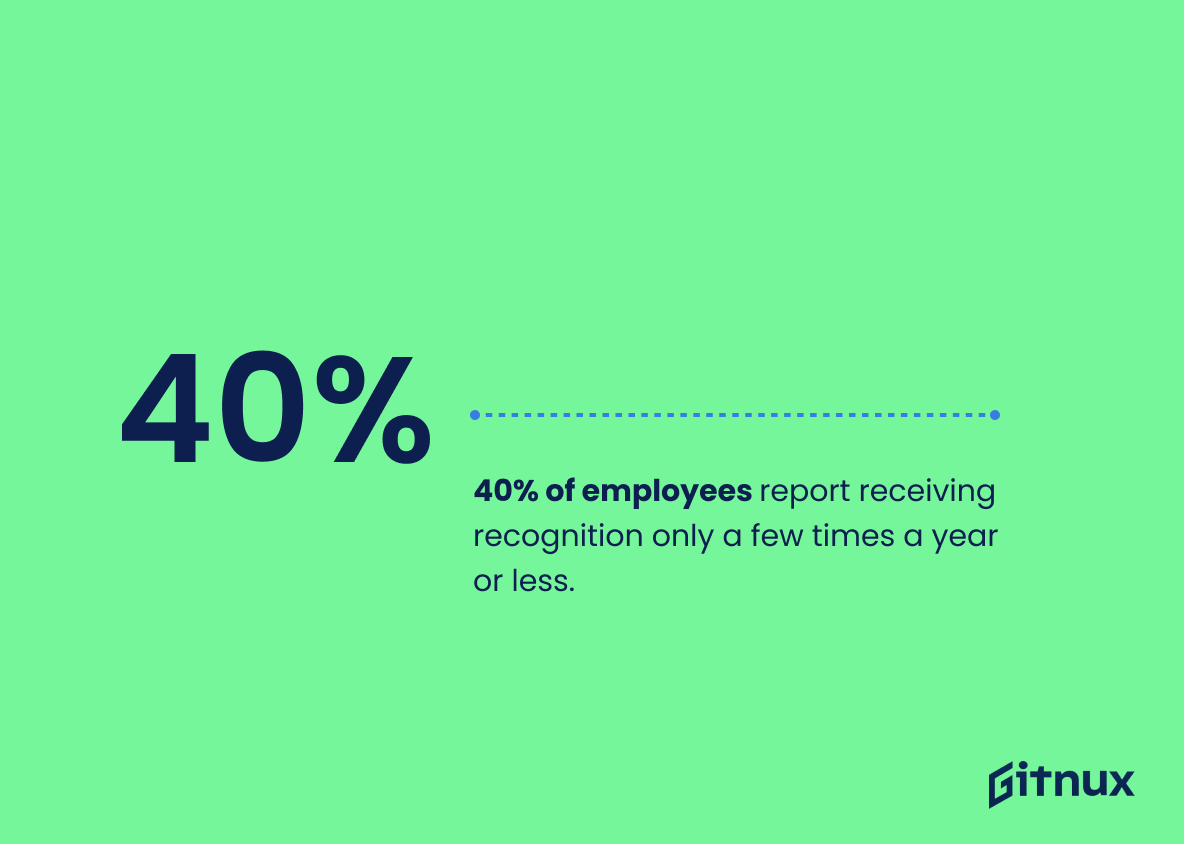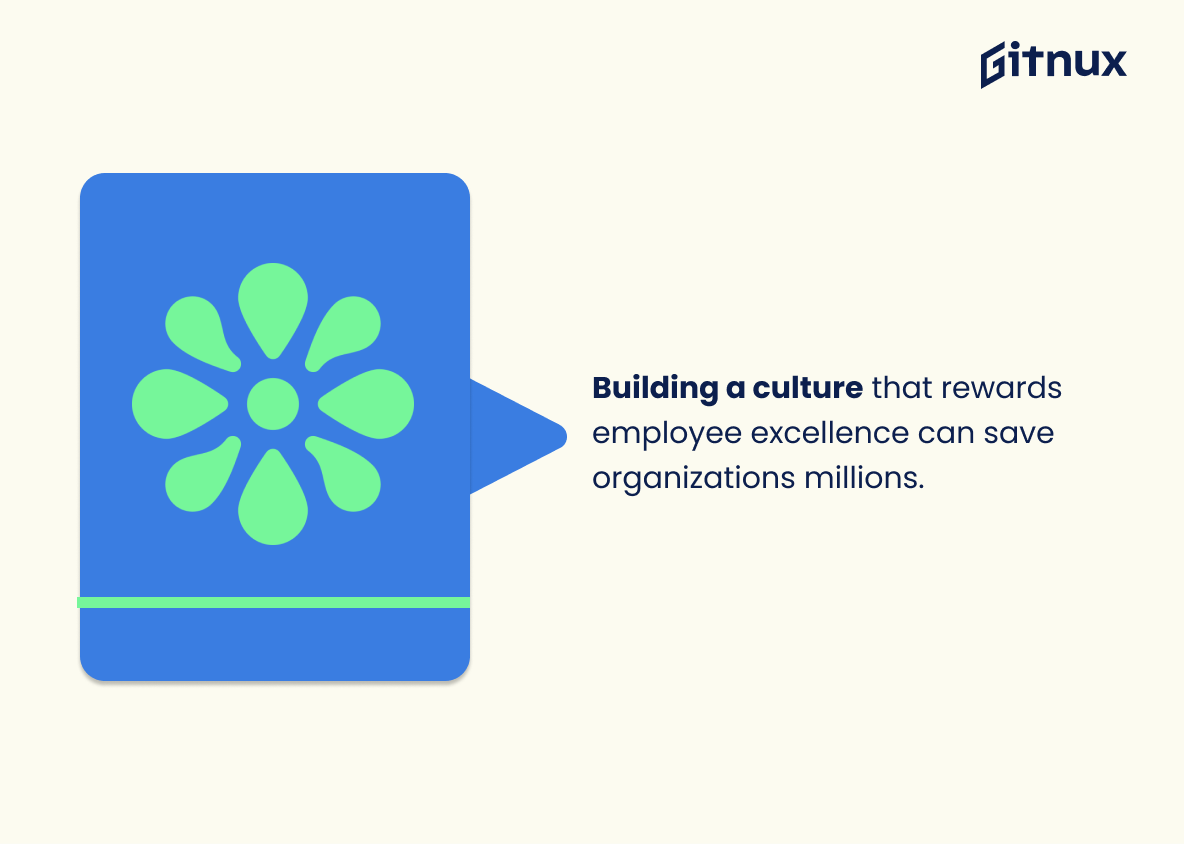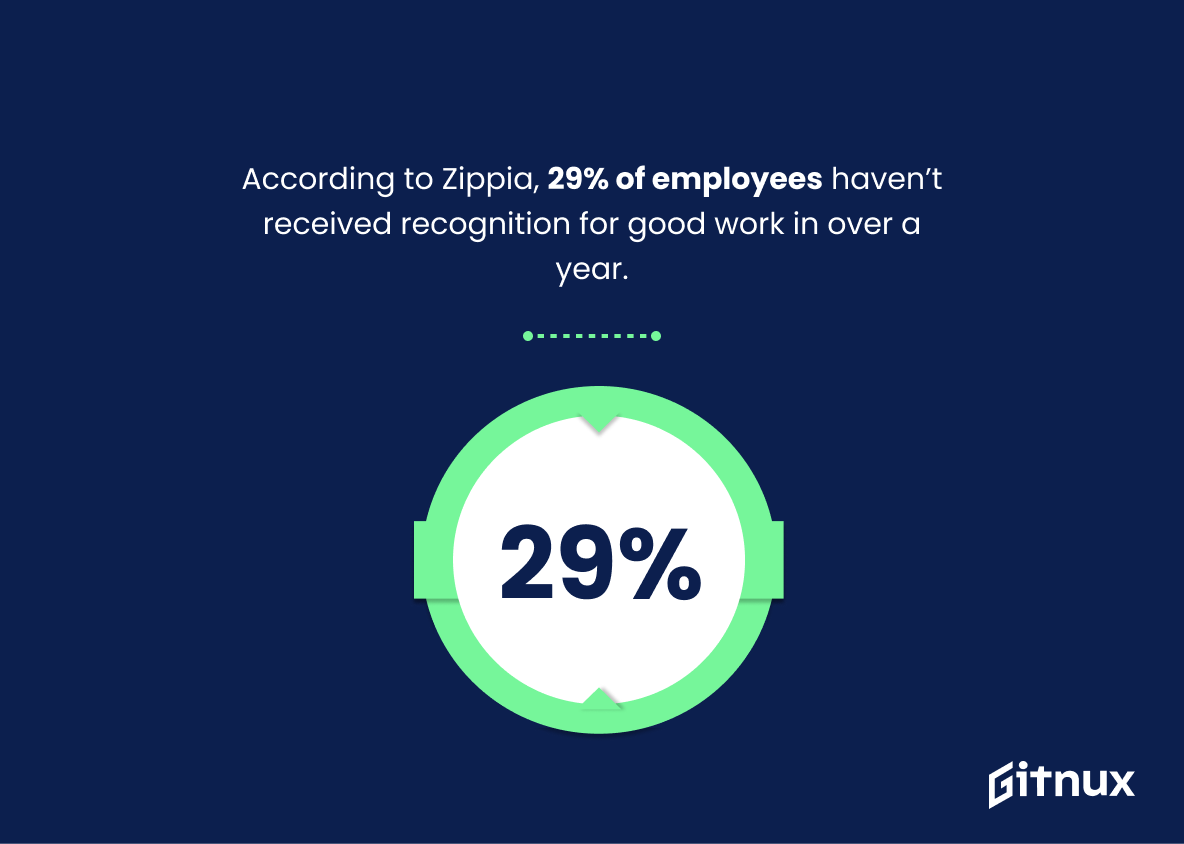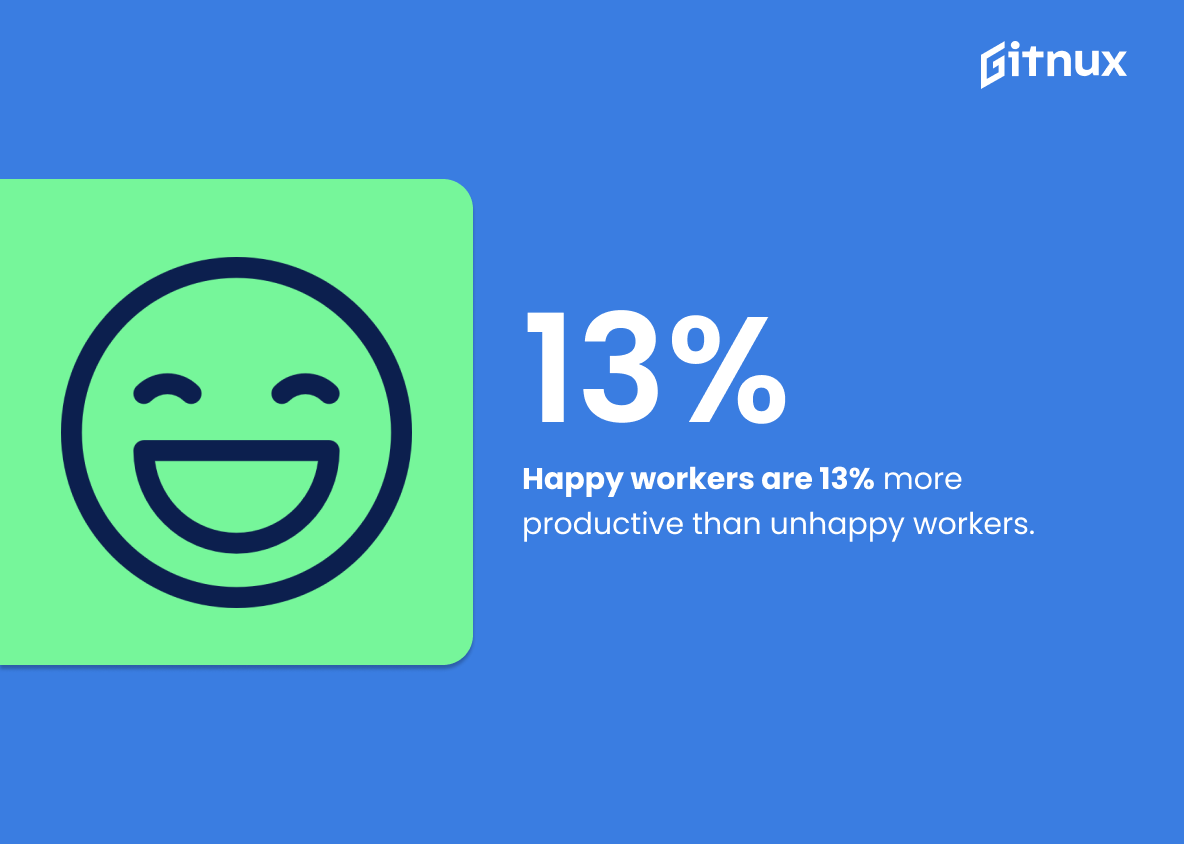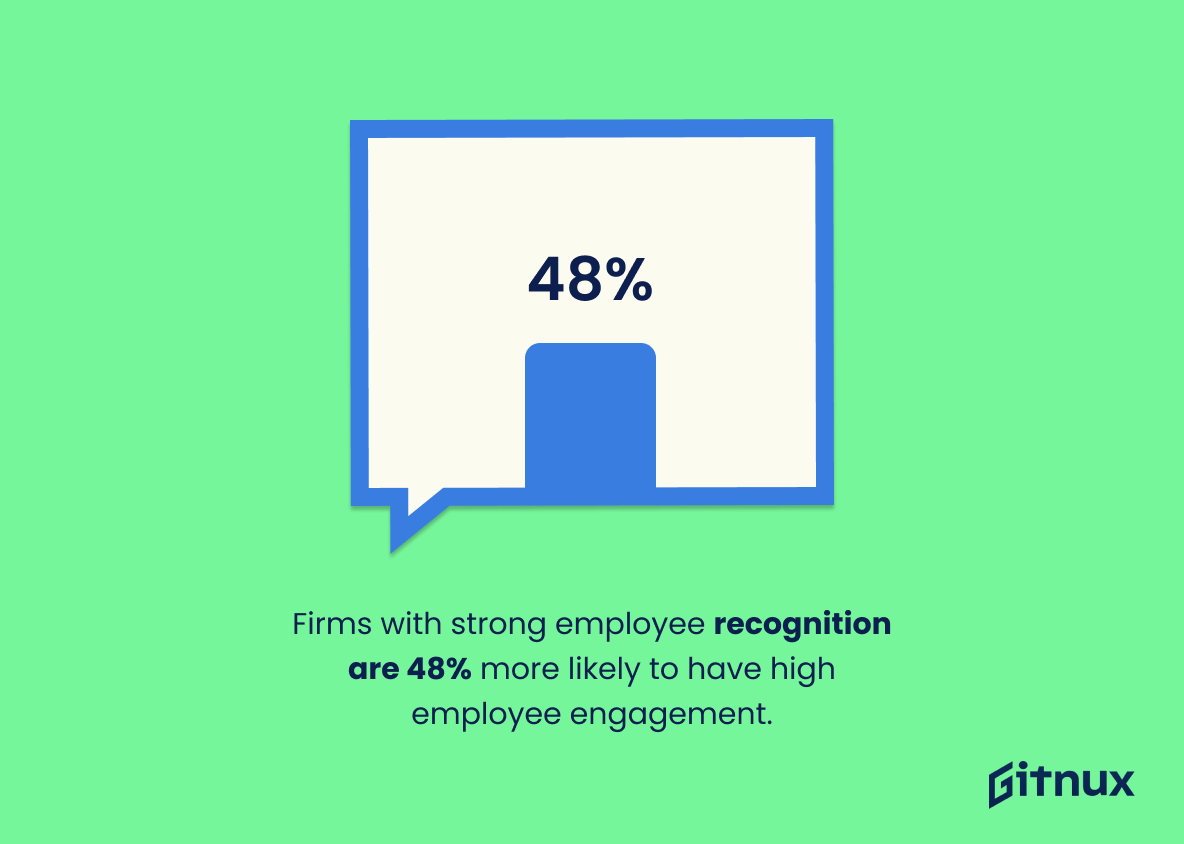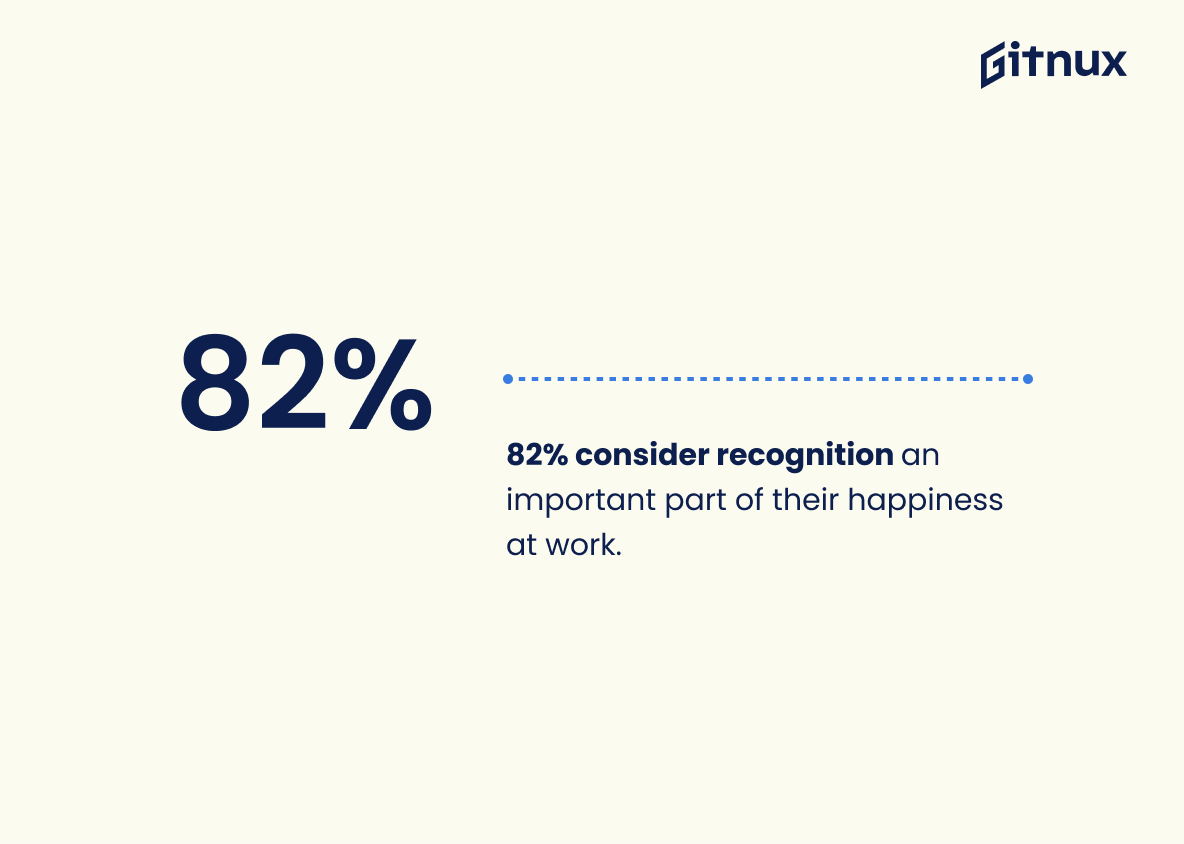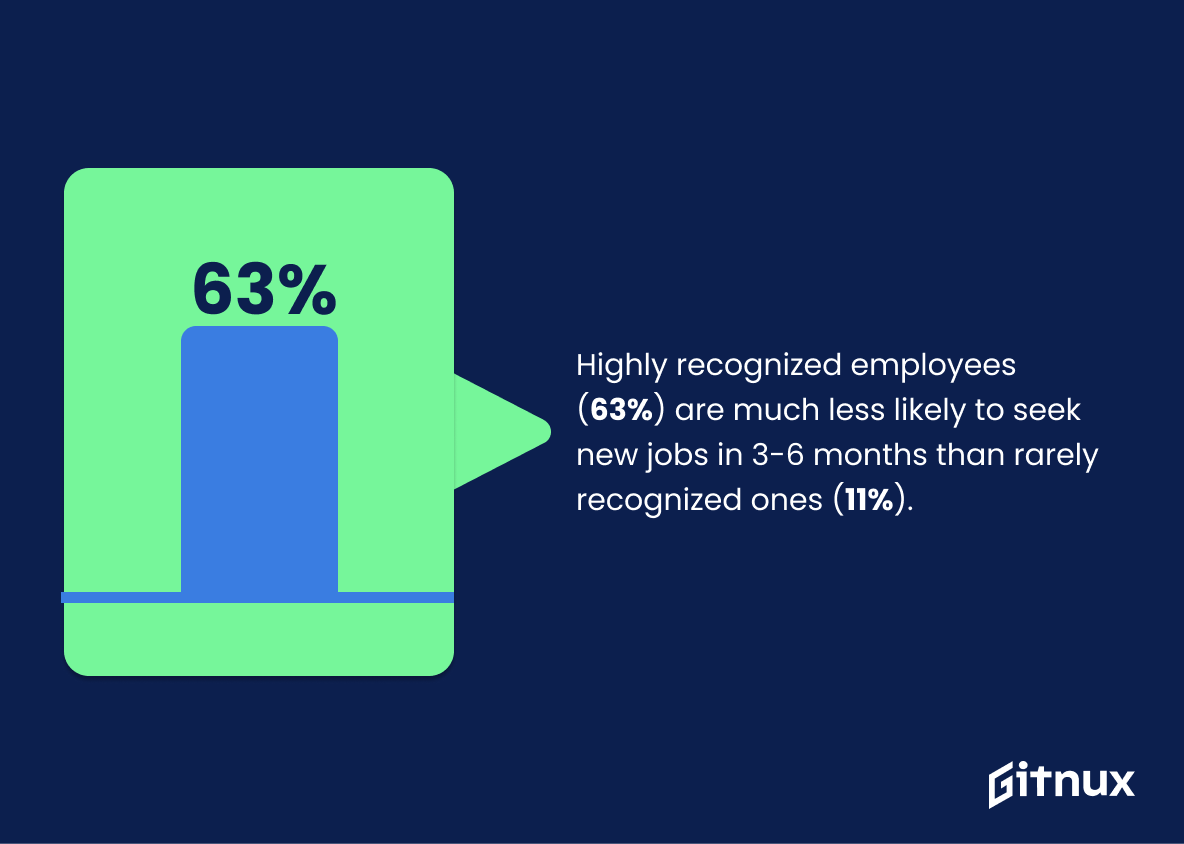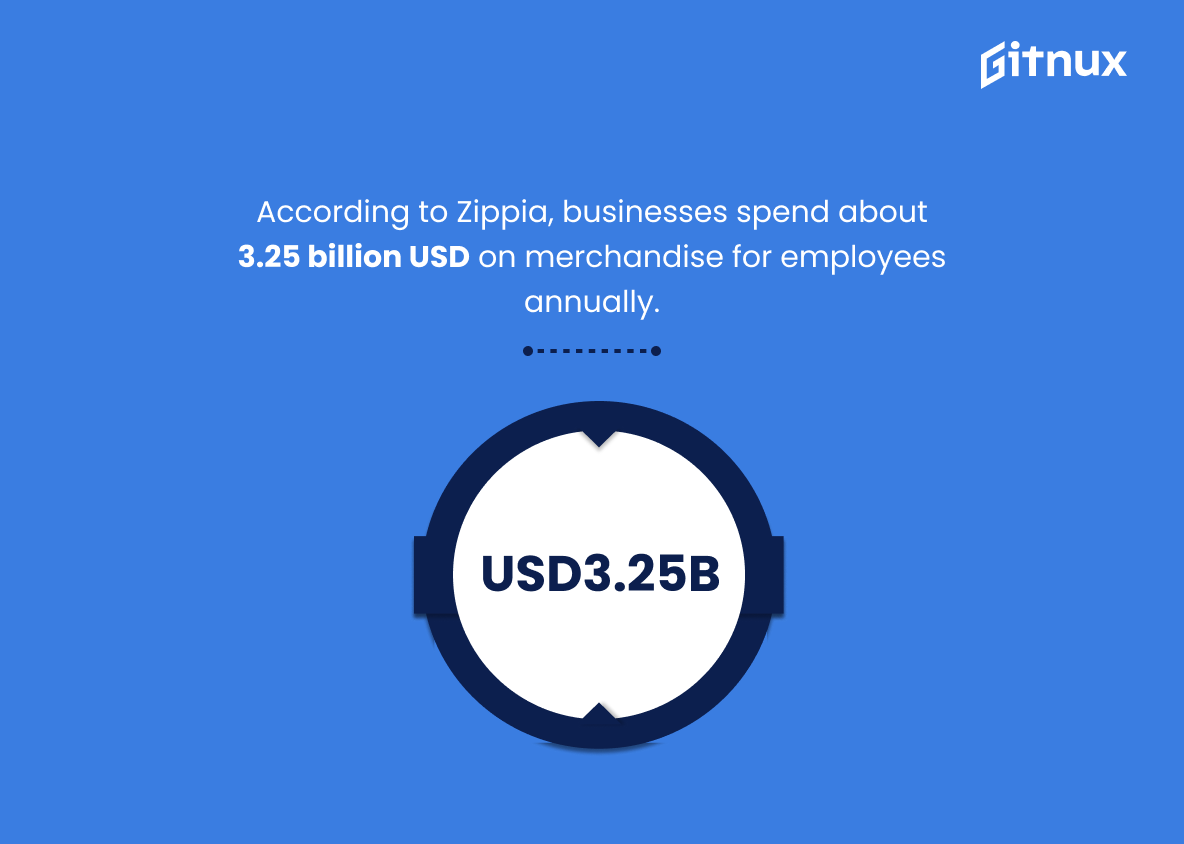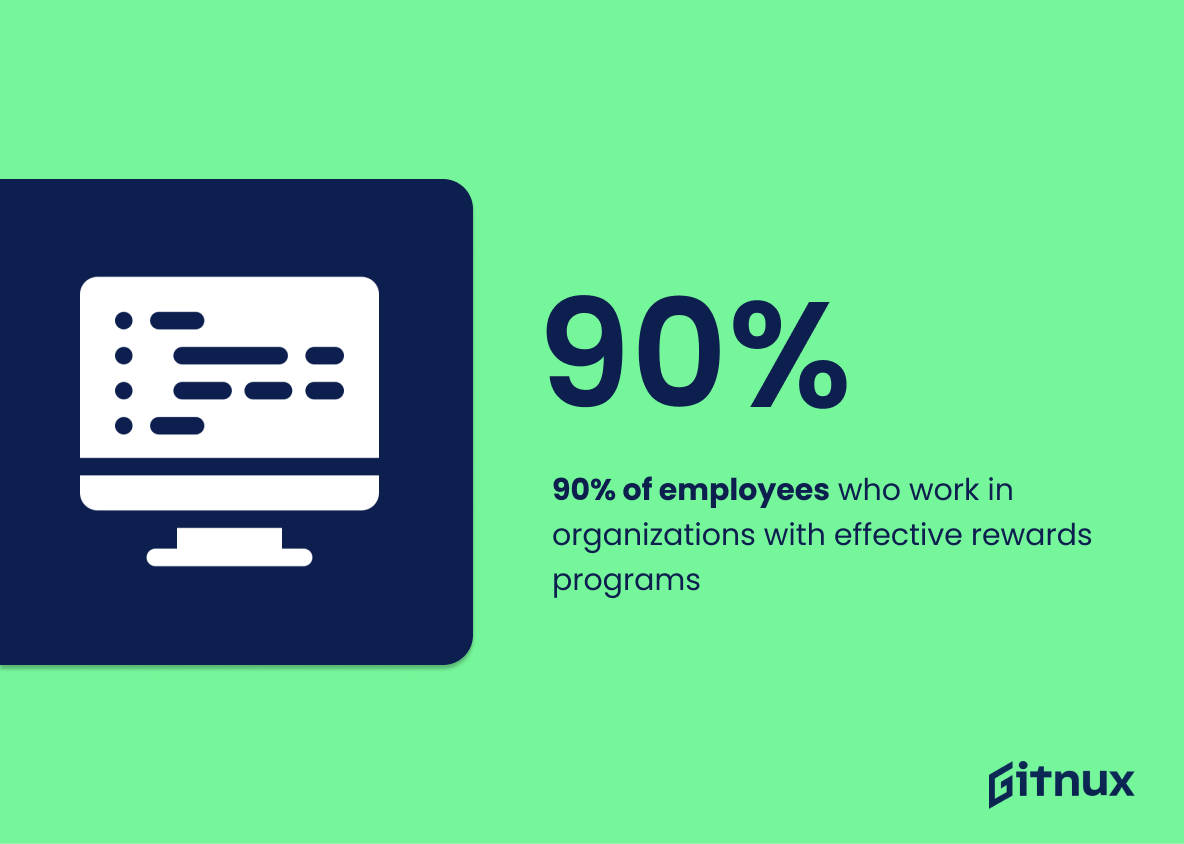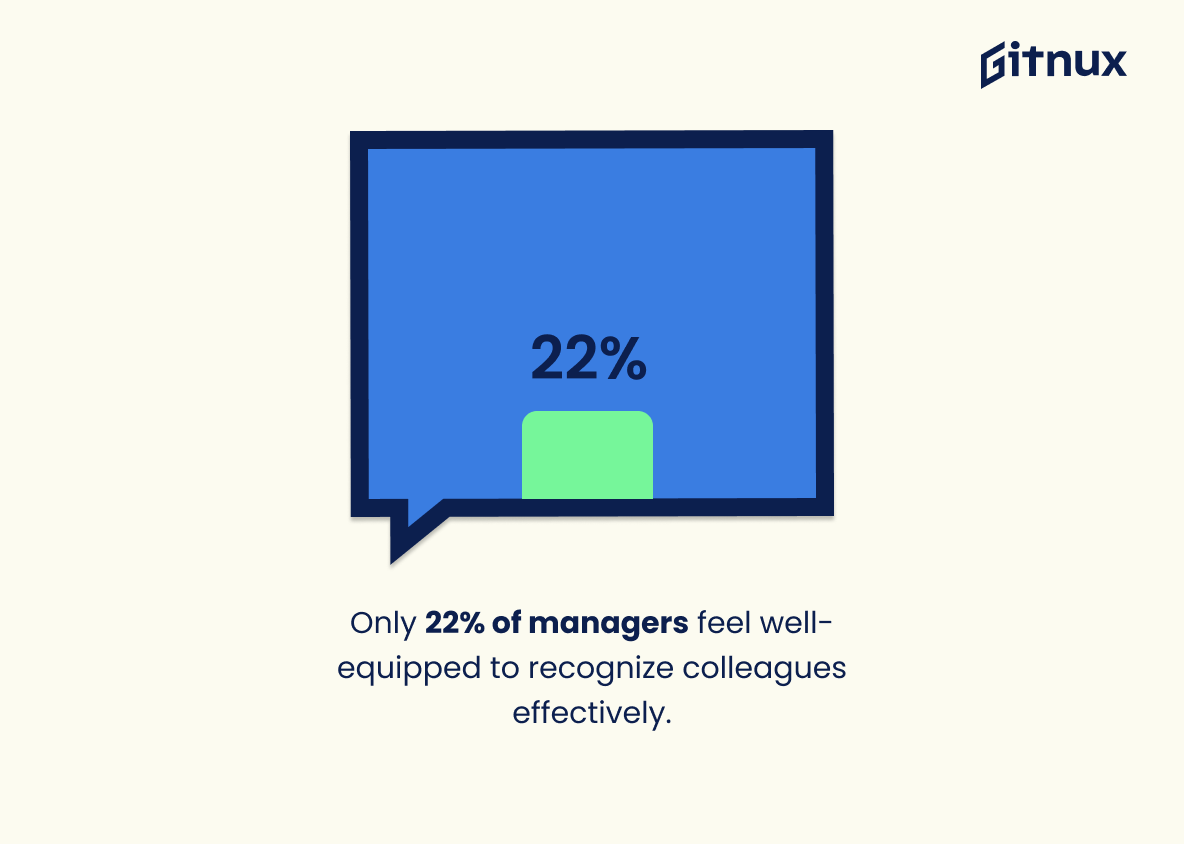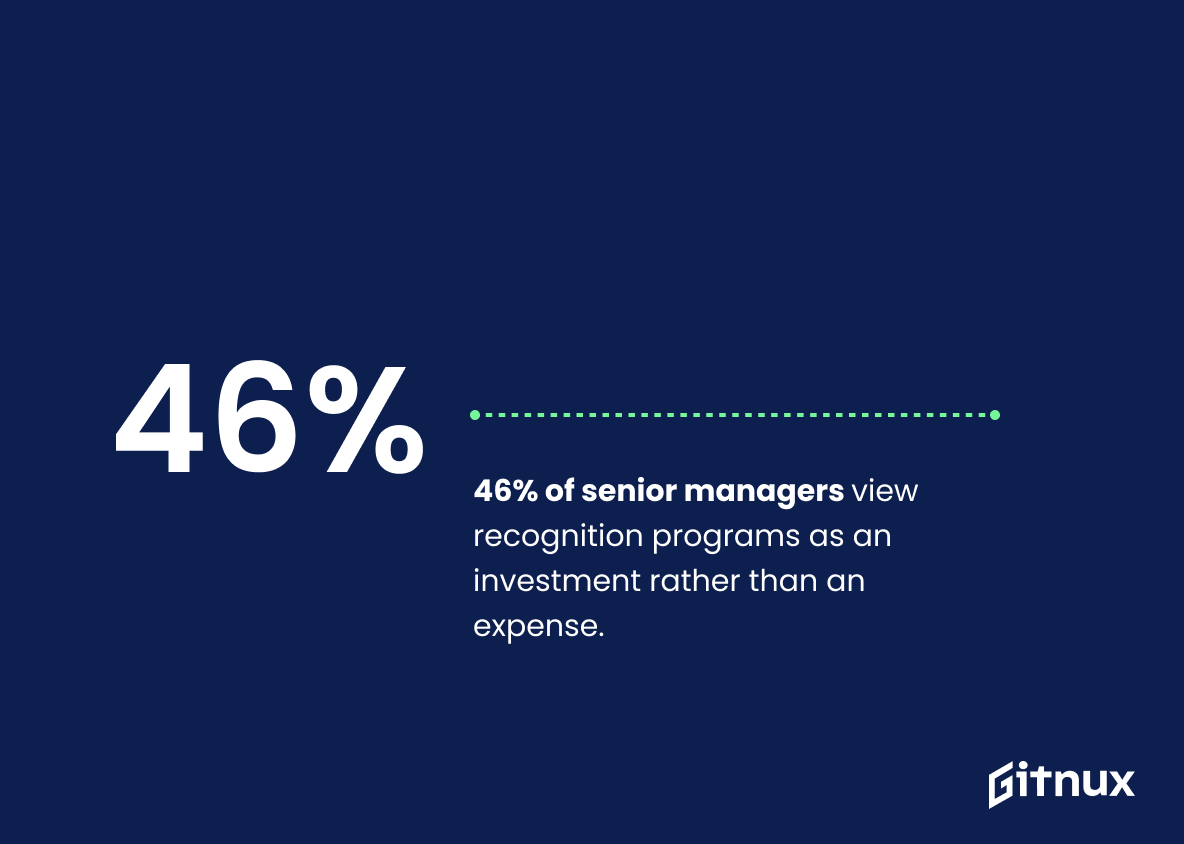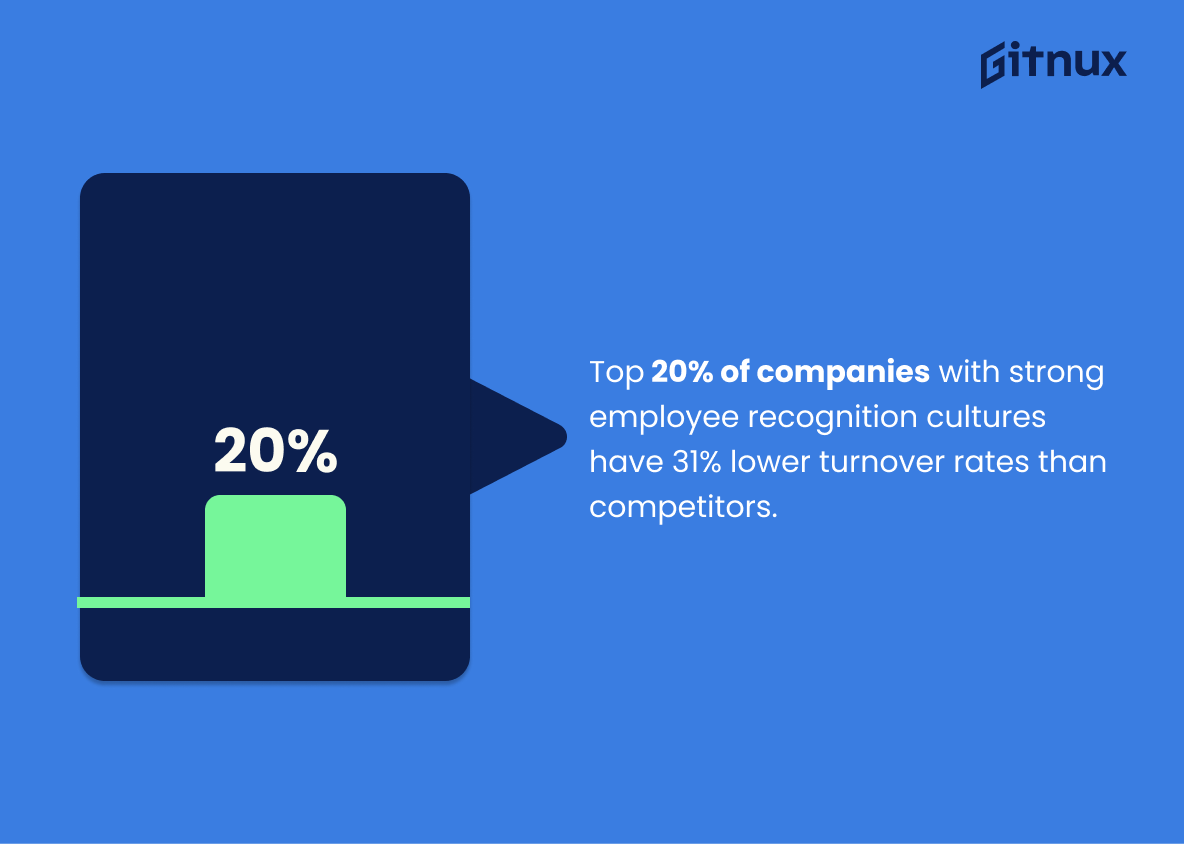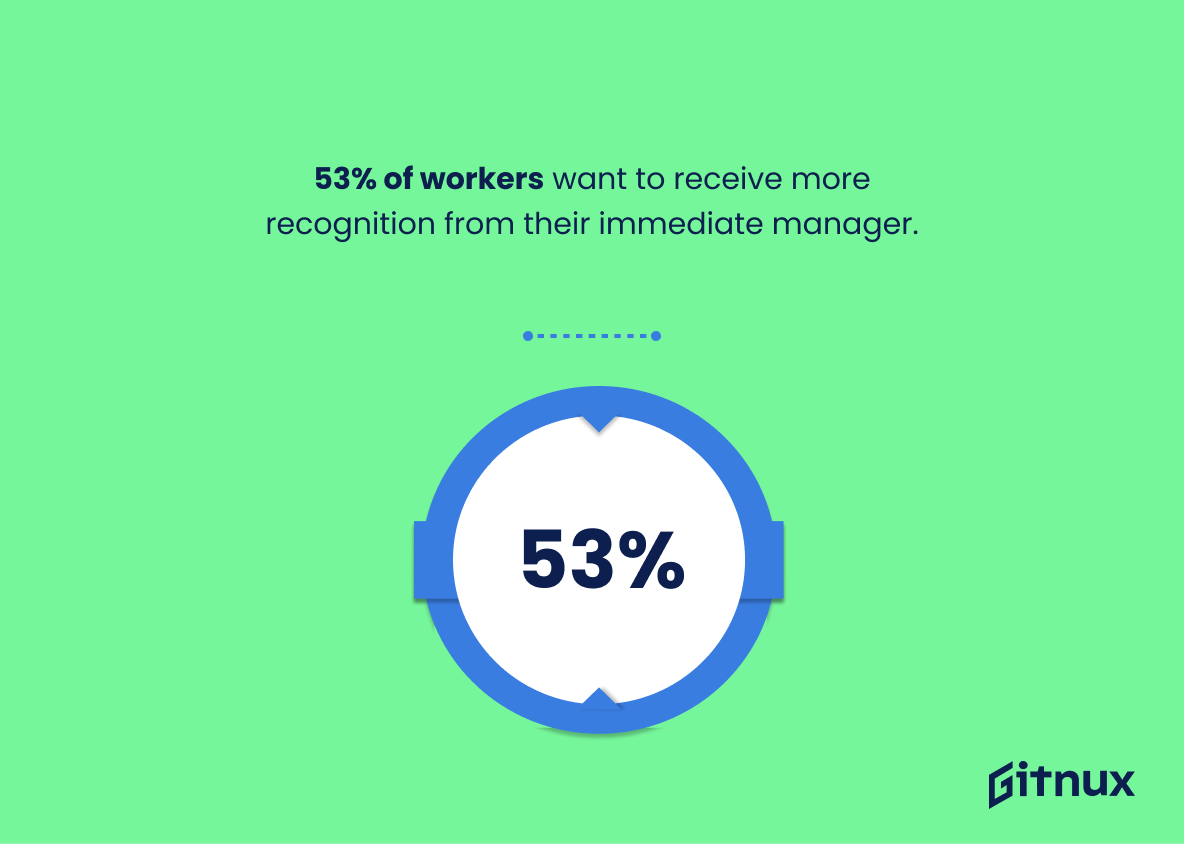Employee recognition is a crucial part of any successful business. It is a way of expressing appreciation to your workers for their effort and commitment. Employee recognition is one of the most effective ways to foster higher motivation and retention among your team members.
In this article, we will discuss the latest employee recognition statistics, what benefits it brings to companies and what happens when you don’t recognize your employees enough. So, let’s check the latest numbers and trends together!
Employee Recognition: The Most Important Statistics
69% of employees planning to quit their jobs said that receiving recognition and rewards would cause them to choose to stay at their current positions.
When companies spend 1% or more of payroll on recognition, 85% notice a positive impact on engagement.
29% of employees haven’t received recognition for good work in over a year, if at all.
General employee recognition statistics
Workhuman and Gallup conducted research among thousands of employees across the U.S. and Western Europe and found that only 36% of employees report their organization having some sort of recognition system in place.
Your Attractive Heading
Only 23% of employees strongly agree they get the right amount of recognition for the work they do.
40% of employees report receiving recognition only a few times a year or less.
By creating a strong culture focused on rewarding employees for their good work, organizations can save millions. In fact, a 10,000-person company can save up to $16.1 million in turnover costs annually. That’s not even including the cost savings from increased engagement or productivity! The 36% of organizations that have an employee recognition program also have a huge leg up against their competition.
According to Zippia, 29% of employees haven’t received recognition for good work in over a year, if at all.
Happy workers are 13% more productive than unhappy workers.
Companies with good employee recognition strategies are 48% more likely to have high employee engagement rates.
82% consider recognition an important part of their happiness at work.
63% of people who are always or usually recognized at work consider themselves very unlikely to seek a new job in the next 3-6 months, whereas only 11% of those who are never or rarely recognized feel the same way.
According to Zippia, businesses spend about 3.25 billion USD on merchandise for employees annually, as a part of recognition programs.
90% of employees who work in organizations with effective rewards programs say that “My work makes a difference.”.
Only 22% of managers strongly agree that their company provides them with the tools and understanding of how to recognize colleagues effectively.
46% of senior managers view recognition programs as an investment rather than an expense.
The top 20% of companies that have strong cultures of employee recognition have 31% lower turnover rates than their competitors.
A survey by Authentic Recognition found how frequently employees receive recognition. 2% of respondents received recognition daily, 11% weekly, 20% quarterly, and 17% annually. 53% of workers want to receive more recognition from their immediate manager.
A survey of more than 600,000 U.S. employees found that 53% of workers want to receive more recognition from their immediate manager.
A well-designed recognition and rewards program can drive an 11.1% increase in average employee performance.
When companies spend 1% or more of payroll on recognition, 85% notice a positive impact on engagement.
Benefits of employee recognition
When employee recognition hits the mark, employees are 5x less likely to leave as they see a path to grow in the organization, 44% more satisfied, and more likely to be thriving in their life overall. 73% less likely to feel burned out, 4x as likely to be actively engaged at work and 5x as likely to feel connected to their workplace culture.
37% of respondents of a 1.7 million employee survey across small, mid-sized and large companies feel that more personal recognition would encourage them to produce better work more often.People who feel recognized at work are 2.6x more likely to think that promotions are fair, 2.2x more likely to say innovative thinking is embraced. They are also 2x more likely to say people here are willing to go above and beyond.
Businesses with formal recognition practices have a massive 31% lower staff turnover rate.
More than 40% of employed Americans feel that if they were recognized more often, they would put more energy into their work.
Interesting work (74%) and recognition and rewards (69%) are the top factors that keep people at their current employers. Employees appreciate the recognition that shows their contributions are valued by the company.
Employee recognition programs benefit organizational values, according to 83% of HR leaders, and 85% say they positively affect organizational culture.
Recognition is by far the most popular motivator to do great work that employees listed. 37% of employees report that employee recognition is the most important thing their manager or company can do to motivate them to produce great work. It is followed by 13% of employees saying they are self-motivated, 12% saying they need inspiration to do great work, and 12% saying that autonomy is their biggest motivator.
80% of employees say they’re motivated to work harder when they’re recognized for their work by their superiors. In contrast, not even 40% say that a demanding boss or fear of losing their jobs motivates them to work harder.
Employees who think they’ll be recognized are 2.7x more likely to have a high engagement at work.
80% of employees would work harder if they felt better appreciated. Strong employee recognition programs reduce turnover rates by 31%. Employees who are recognized are almost 6x more likely to stay at their jobs than those who aren’t. 92% of employees are likely to repeat a specific action if given recognition for it.
37% of employees report that the best way to improve their engagement is for their superiors to give them recognition.
Just improving recognition by 15% in a company can increase its margins by 2%.
Organizations with employee recognition programs see employee performance, engagement, and productivity increase by 14% more than those that don’t have these programs.
Most of HR professionals agree that recognition can help create a positive workplace culture and employee experience, and more than one-half said their program improves retention (68%) and recruitment (56%).
87% of HR professionals agree that employee recognition programs improve workplace relationships. 82% and 86% say it increases employee happiness and improves organizational culture.
Lack of Employee Recognition and its negative impact
It’s also important not only to recognize your employees, but also to do it more often. Employees who receive recognition only a few times a year from leaders are 5x as likely to be actively disengaged, and 74% more likely to say they don’t plan to be at the company in 1 year. These employees are also 27% more likely to be struggling.
44% of employees who are planning to leave their jobs say that a lack of recognition is their main reason.
69% of employees planning to quit their jobs said that receiving recognition and rewards would cause them to choose to stay at their current positions.
Employees who don’t feel recognized are 5x more likely to look for work elsewhere than employees who feel recognized.
31% of employees reported a lack of support and recognition from top leadership is the top driver of workplace burnout.
For 55% of employees who planned to switch jobs, lack of recognition was the No. 1 culprit in driving their decisions. 69% of them would have been more likely to stay if their employers offered more rewards and recognition.
The most popular employee recognition ideas
The research also found recognition with monetary rewards is 20% more effective than e-thanks alone when looking at reducing turnover.
Only 21% of employees report their organization tying monetary rewards to their recognition strategy.
87% of companies use tenure-based recognition. This means that 87% of organizations give their employees recognition or awards for working at the company for an extended period. However, only 58% of employees know about these programs, showing that many miss the mark in helping employees feel recognized.
65% of employees prefer non-cash incentives from their employers. They say that their employer taking the time to choose an award that they’d appreciate and present it meaningfully means more to them than getting cash.
46% of employees say that an unexpected reward like a snack, lunch, or thank you note from their bosses would make them feel more appreciated.
In addition, 24% say they would feel more appreciated if the company hosted an event such as a holiday party or a simple cocktail hour.
According to the Deloitte report, 76% of surveyed workers say skills-based pay would improve their experience at work, and 74 % say non-monetary recognition for skills would be similarly beneficial.
Align employee recognition programs with organizational values and talent strategy for greater impact. Employee recognition programs were rated higher by HR when they were aligned with organizational values and talent strategy. Monetary investment is also important, but it had a more positive impact on employee recognition program ratings when recognition was core to the organization’s talent strategy.
Consider a variety of workplace programs to help with culture management—the third biggest workforce challenge (34%). Unsurprisingly, the most common programs offered were health and wellness (70%) and learning and development (68%). However, another 60% of responding organizations helped employees celebrate life events like having a child, birthdays or retirement. For example, organizations may provide a card, gift, budget, supplies, food or have a place to share photos/news.
75% of employees say that a simple “thank you” is enough for them to feel recognized.
Given the choice, 57% of employees said they would opt for recognition in the form of a cash bonus or raise. 20% chose visibility to senior leaders as their preferred form of recognition, and 17% value employee awards.
Personalization is appreciated too. 66% of employees are more likely to value 2 tickets to a concert of their choice instead of getting 3x the value of those tickets added to their paychecks over a year, Xexec states.
The rewards most appreciated by workers include annual leave (43%), public recognition (15%) and team drinks (15%).
52 % of employees prefer to celebrate rewards with their families, while 39% would rather do it with colleagues.
For day-to-day accomplishments, the most valued recognition is the verbal “Thank you”, as it’s most appreciated by 54% of employees. For a significant accomplishment, 47% of employees prefer new growth opportunities.
Peer-to-peer recognition makes 90% of employees more satisfied with their work.
According to LinkedIn, 65% of employees prefer non-cash incentives. Over 65% of surveyed participants strongly agree that travel incentives/rewards are remembered longer than cash payments.
85% of employees believe management should reward employees for a job well done whenever it occurs.
According to Bonusly, 44% of employees prefer a gift card as a recognition reward, and 41% would like to have a paid trip with the team.
Conclusion
Now you see, how important employee recognition is for workplace engagement and productivity. When people feel recognized and valued by their employer, they stay productive and loyal to the company and will do everything in their power for its success.
Unfortunately, many organizations don’t understand how much they lose by not having good employee recognition in place. We hope that seeing the latest trends on this topic and the countless benefits of employee recognition will help you to create a strong environment of recognition and appreciation, which will lead to increased employee retention and productivity.
FAQ
References:
Workhuman: “Employee Recognition Statistics You Need to Know in 2022”, cited in January 2023 (Source)
Zippia: “27 essential employee recognition statistics [2023]: need to know facts for managers and hr”, cited in January 2023 (Source)
Surveymonkey: “Can employee recognition help you keep them longer?”, cited in January 2023 (Source)
Hblresources: “10 Cleverly Delicious Ways to Recognize Your Employees.”, cited in January 2023 (Source)
Rewardgateway: “Organisations riks losing employees by failing yo provide recognition at work”, cited in January 2023 (Source)
Semoscloud: “Recognition and Rewards: Everything You Need to Know”, cited in January 2023 (Source)
Authenticrecognition: “How frecuently should yo give Recognition”, cited in January 2023 (Source)
Netsuite: “25 Employee Recognition Statistics That Prove Recognition Matters”, cited in January 2023 (Source)
Gartner:”4 Recognition and Rewards Program Levers for Driving Performance and Engagement”, cited in January 2023 (Source)
Shrm:”SHRM-Globoforce Survey: HR Professionals Indicate Recognition Programs Have Positive Impact on Retention and Recruitment”, cited in January 2023 (Source)
Greatplacetowork: “Creating a Culture of Recognition”, cited in January 2023 (Source)
Mo:”15 Thoughtful Employee Recognition Ideas”, cited in January 2023 (Source)
Apollotechnical: “17 employee recognition statistics”, cited in January 2023 (Source)
Deloitte: “Workplace Burnout Survey”, cited in January 2023 (Source)
Deloitte: “The skills-based org in practice: Rewards and recognition”, cited in January 2023 (Source)
Deloitte: “The Practical Magic of ‘Thank You”, cited in January 2023 (Source)
Shrm: “SHRM/Globoforce Using Recognition and Other Workplace Efforts to Engage Employees”, cited in January 2023 (Source)
Linkedin: “Employee Incentive Statistics That Will Blow Your Mind!!”, cited in January 2023 (Source)
Bounsly: “Bridging the Appreciation Gap: How Employees Prefer to Give and Receive Recognition at Work”, cited in January 2023 (Source)
ZipDo, cited June 2023: Employee Recognition Statistics
